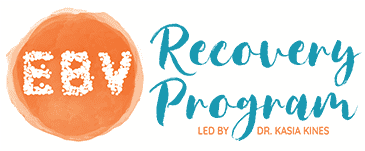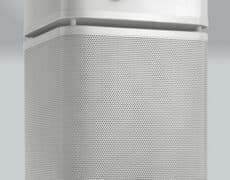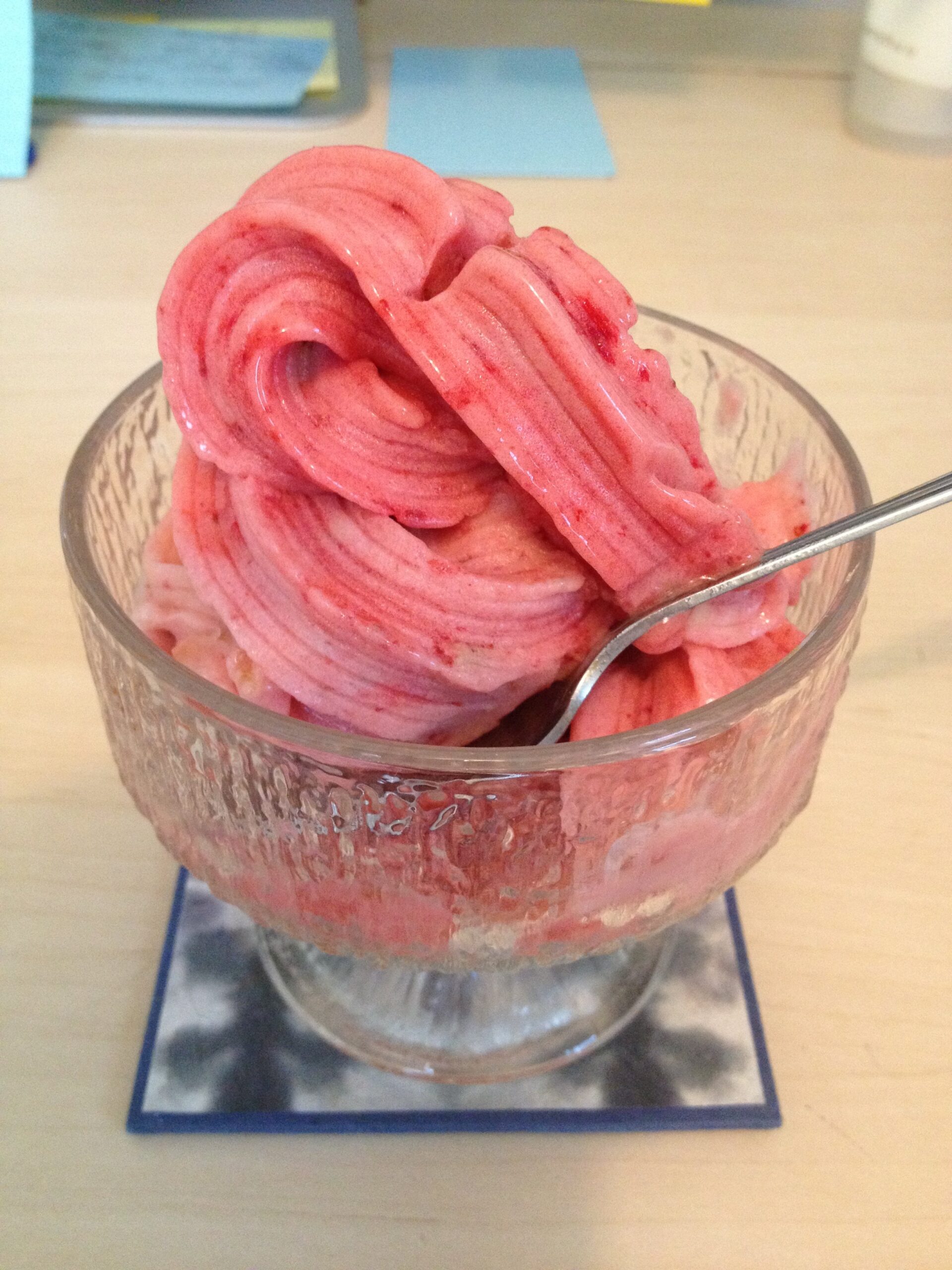Glutamine Intolerance
Dr. Kasia Kines, Nutritionist, CEO and founder of EBV Educational Institute
Virtual clinic serving the US and globally
[email protected]
In this video, I describe an unusual situation that may happen when you use l-glutamine for your gastrointestinal needs, e.g. for leaky gut recovery- when you actually become reactive to this otherwise very safe amino acid. Why would that be? It is highly unusual, but it has happened enough times in my practice to look into it, which I did for you here! The video goes into the details of it for you and tells you what to do with it. The solutions are remarkably simple.
When working with complicated gastro-intestinal patients, I use glutamine as an essential part of the protocol for the recovery of the gastrointestinal tract, and for good reasons. L-glutamine is the most abundant amino acid in the body, readily available. It is the main source of nutrients for enterocytes, the cells lining your intestines, and your body can make it. But we also call it conditionally-essential because in certain situations such as trauma or burns glutamine levels drop severely, the body cannot make enough, and in extreme cases that can even lead to death.
Clinicians generally use as much 25g l-glutamine a day if needed, and I present you with research behind the safety levels. Interestingly, glutamine is needed not only for the gut, but also for the muscles, the lungs and even your brain!!!! So the needs are quite high. If all nutrients are in place, glutamine helps form GABA, the neurotransmitter of calm and happiness. When GABA is deficient, you experience anxiety fear, brain fog, insomnia, so of course you want a steady level of GABA.
Enjoy the video to get a walk through this fascinating topic!
Dr. Kasia Kines, Nutritionist, CEO and founder of EBV Educational Institute
Virtual clinic serving the US and globally
[email protected]
LEAVE A COMMENT
If you want to transform your life, if you want health and wellness, if you want peace of mind, there isn’t a better investment than working with Kasia.~ Beth






















16 Comments
Posted on January 28, 2017 at 12:34 PM by Candice
I have been looking for the answer to this for months! I think it is one of my key issues. I do not tolerate more than 2.5g of l glutamine and I am wondering if I could tolerate collagen powder or bone broth. I hate to use trial and error. Should I avoid bone broth and collagen powder for now?
Posted on January 28, 2017 at 2:35 PM by Kasia Kines
I would do testing first, for GAD, for magnesium level, for B6 level, etc., so that the body can use glutamine from whatever sources. Try collagen or even better gelatin and see how you do. 🙂
Posted on November 3, 2017 at 5:27 PM by Heather
My reaction to only 500mg is extreme joint pain. Is this a herxing reaction of some sort?
Posted on January 10, 2018 at 4:13 PM by Fran
Hi, I have a leaky gut, and I’m doing the autoimmune protocol, and every time I take glutamine, I feel worse. I’m relieved to know that someone knows about this topic. I will choose to take natural gelatin (grenetina) and bone broth. Do you agree or do I need something else? Thanks.
Posted on January 10, 2018 at 6:39 PM by Kasia Kines
Glutamine should be used once any pathogenic infection is cleared. If you watch that video, the key point is that you may not have enough B6 and magnesium to run the glutamine into GABA. Also, glutamine is not a long term supplement. I only use it with patients for 2 months max. Or shorter.
Posted on January 10, 2018 at 6:43 PM by Kasia Kines
As I mentioned above, glutamine is complicated: it requires Magnesium (commonly lacking in American diet) and Vitamin B6 (which depends on the integrity of the stomach for absorption and is depleted in stress). Glutamine is not a long term supplement. There may be various reasons for your reactions: contamination/low quality of the product, overuse/used too long or too high of a dose, or perhaps you do not have need for the extra you are providing. Remember that glutamine is a conditionally essential nutrient. That means that in normal circumstances, your body makes enough of it from foods you eat. In trauma, survey, injury, gut injury, severe athletic endeavor (marathon) your glutamine needs are not met and then you need to supplement. I do not know the background of your story, so i cannot make more comments here, but i hope it is helpful.
Posted on January 10, 2018 at 6:46 PM by Kasia Kines
Glutamine is used for enterocytes (cells of your gut lining), your skeletal muscles, your lungs and then your brain. In the brain, glutamine converts into glutamate and if you have enough B6 and Mg, it makes your GABA, and that is your neurotransmitter of happiness and relaxation. More is not better. it is conditionally essential, so normally your body makes enough for you from other components. Take a look at the answers I just posted above, i hope they will help.
Posted on January 12, 2018 at 6:12 AM by Fran
Thank you very much for answering fast. I am Spanish and my English is not so good, so in the video I didn´t understand it very well. I was just to tell you that thanks to your information, I am thinking of eating spirulina, since this seaweed has B6 in addition to other nutrients. As I have read in other comments, I may not need to take glutamine, however I will check it after being eating this seaweed for several days. Thank you very much again.
Posted on January 28, 2018 at 3:59 PM by Kasia Kines
Good luck. Yes, the presentation is a little technical, i am afraid. Glutamine should not be taken indefinitely. It as its purpose for specific support!
Posted on May 14, 2018 at 6:03 AM by ouss
Thank you for the video, it helps really. Basically i devlop a leaky gut a year ago now after an hemoroid surgery + some gastric issue (many antibiotic and drugs) + western food life style(frozen food , take away) .. and i develop many food intolerence and my health go so bad (always dizzy , tired , sick ).
Soon i understad my issue i stop having any (sugar, break , dairy .. ) and i’m having only vegetables and chicken meat for the last 6 months . (loose 20 kg in 6 months )
I start recently drafting a healing leaky gut protocol that i inspire from some doctors and nutritionist website and the most recommended supplement is L Glutamine , I buy all the supplement (L glutamine , coconut activated charcol , quercetin , Clostrum LD , fulvic acid , NAC , alpha lipoic acid , organic weat grass and other organic ingredient like chia seed and kefir)
I start last week trying the supplement one by one each day before starting to identify if i ‘m having any intolerance or issue with any .. and i feel having an issue with the L glutamine and i would like to ask for your advice .
I get a half tsp of L glutamine powder (solgar) at midday .. after couple of hours i felt some sting in up right side of my stomach (maybe the liver) i was fine after that until i felt a bit dizzy by 22:00 .. and i wake up at 3 in the morning to urinate witch is not a common thing for me . my GF have same issue but she start with 1 tsp and she wake up night many times to urinate .
Then my question is should i continue with the L glutamine or it will be harmful for me ? should i try again after a period ? or maybe should i have some b6 , Mg or any supplement a week or maybe more before trying again ?
Thank you very much
Posted on May 14, 2018 at 12:46 PM by Kasia Kines
I am afraid that i cannot provide clinical answers over emails or social media. For one thing, glutamine should not be used long term. Just 1-2 months during healing of the gut lining and then as needed. When the body is in a better place, it makes glutamine by itself. Glutamine is needed for muscles, lungs, and the gut lining, so there is competition, e.g. if you are a serious runner or are really ill. You do require B6 and magnesium to use glutamine to make GABA. I recommend that you seek a functional practitioner that would look at all the details and help you clinically. Institute for Functional Medicine has a database by zip code. Good luck.
Posted on August 24, 2019 at 9:40 PM by Jenay
What is going on physically when glutimine causes loose stool? Also, what byproducts of glutimine get passed through the urine?
Posted on October 24, 2019 at 2:47 AM by Debbie
I stopped taking a PPI that I was on for 20 years, immediately, I started having severe digestive issues. After many doctors and testing, I have been treated for SIBO and Fungal overgrowth,have been told I have IBS, my pancreas doesn’t produce digestive enzymes , I have low sucrase and bile acid malabsorption. I am miserable. They cannot even explain some of the symptoms I have. Gastreonologists just keep pushing more and more medications. Finally, I started a Leaky Gut Supplement Regimine but have been getting muscle spasms when taking the L Glutamine (3.7 grams per day. Will adding B6 and Magnesium eliminate these symptoms?
Posted on November 29, 2019 at 10:56 PM by Kasia Kines
I cannot say if that will do the trick. You definitely would benefit from working in depth with an experienced clinician.
Posted on November 29, 2019 at 10:57 PM by Kasia Kines
The most common side effect of excess glutamine supplementation is actually constipation.
Posted on January 31, 2020 at 5:23 PM by Alyson
Omg I think this happened to me! LGlutamine is touted all over as the perfect supplement and I didn’t feel this coming until I wound up in ER with “anxiety”. Now I’m nervous shakey and anxious all the time and heart races in spite of breathing exercises. How do I reverse this?